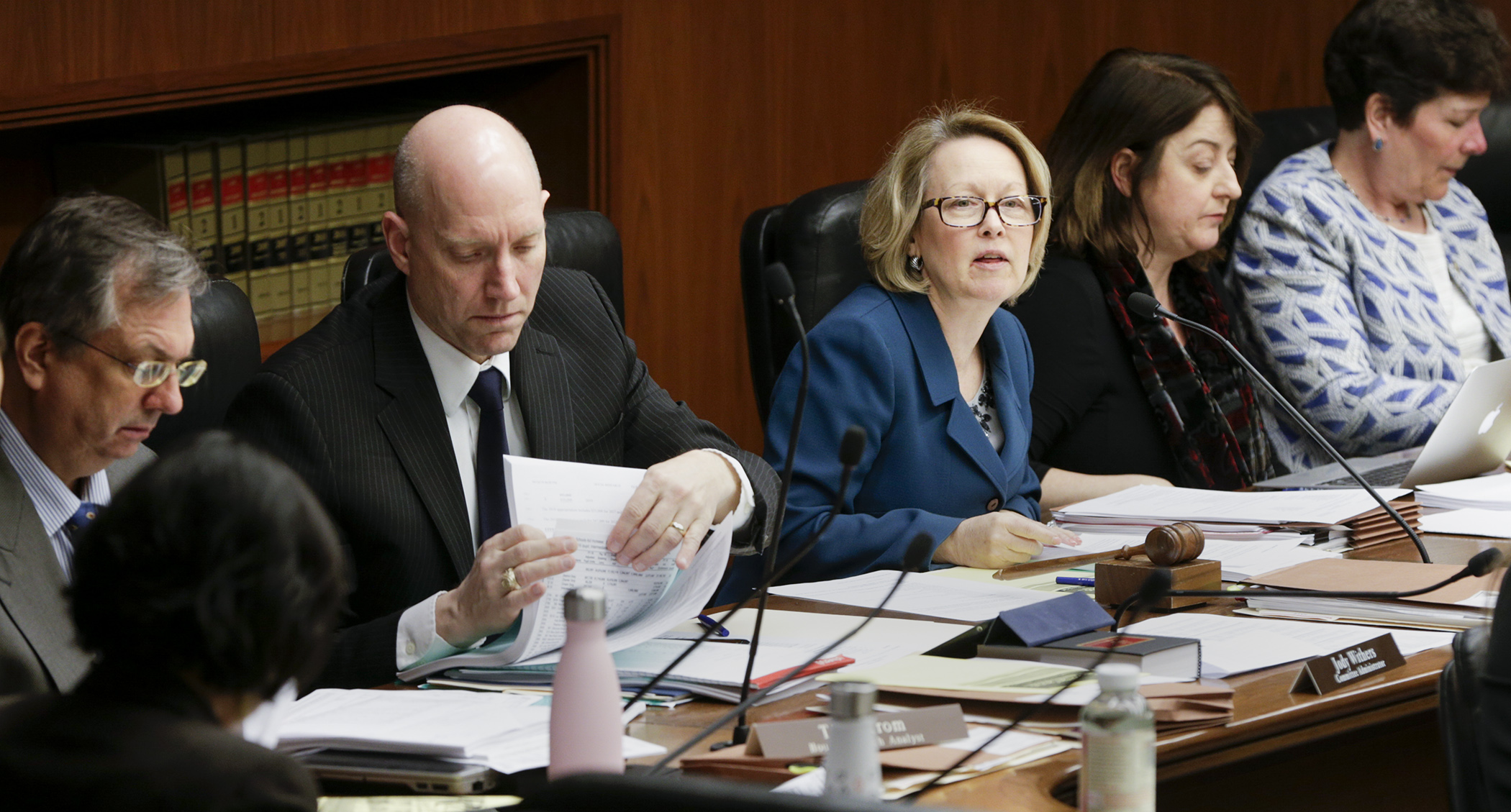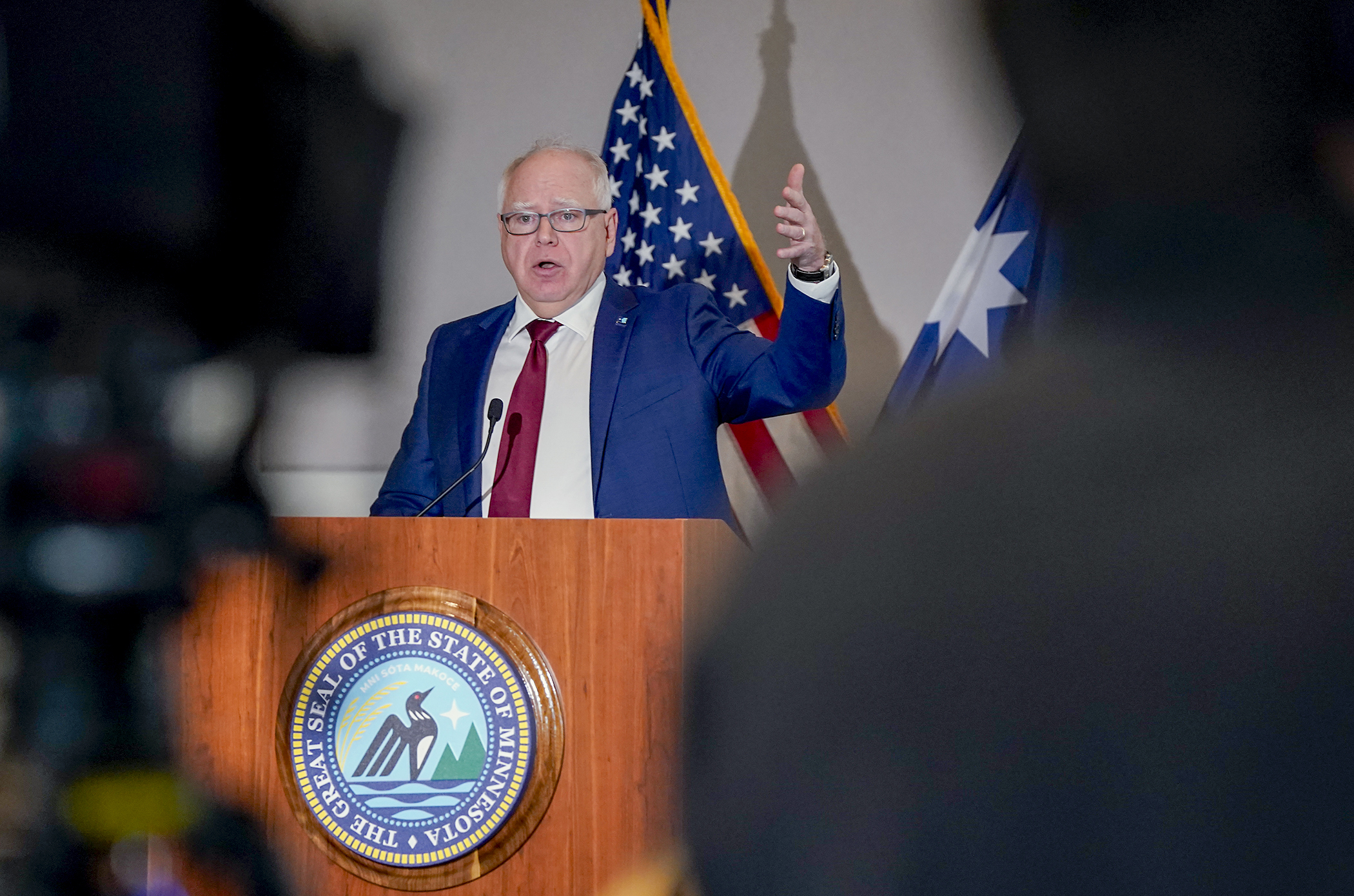Improving school safety part of wide-ranging education finance bill

The omnibus education finance bill would provide $30.2 million in added investments for Fiscal Year 2019, with $27.5 million of that going to fund an array of school and student safety enhancement options.
The House Education Finance Committee reviewed HF4328, sponsored by Rep. Jenifer Loon (R-Eden Prairie), Tuesday. The committee will hear amendments tomorrow and is expected to take action on the bill. Its companion, SF3928, sponsored by Sen. Carla Nelson (R-Rochester), awaits action by the Senate E-12 Finance Committee.
Loon said the bill’s school safety and security provisions rely on multiple options, combine additional resources and offer the flexibility of existing resources to school districts, charter schools and cooperatives.
“We have borrowed the best ideas that have been put out there from the governor, from the Senate, from all the members of this body that have offered up some really great ideas and I think we have basically utilized all of them in this proposal,” she said.
The school safety components include $20.2 million for the Safe Schools Revenue Program, $2 million for physical security audits of school sites, $400,000 for school resource officer training, and $300,000 for school threat assessment training. An additional $5 million in ongoing funding would also be appropriated for school-linked mental health grants, for districts and counties that aren’t currently offering these services.
HF4328 also includes dozens of new policy provisions such as codifying the teacher code of conduct, strengthening background checks, updating the list of criminal offenses that disqualify an individual from obtaining a teaching license and updating mandatory reporter laws to remove ambiguity.
WATCH The House Education Finance Committee walks through the omnibus bill
“Basically it codifies the teacher code and also makes it clear that sexual contact with a student, regardless of a student’s age, is not acceptable,” Loon said.
Education Commissioner Brenda Cassellius commended the committee on its efforts to improve school safety but took issue with several provisions, including one that would reduce the Department of Education’s funding by $2 million between Fiscal Years 2020 and 2021.
"There’s a lot of work given in this bill, but with the proposed $2 million cut and no new funding, I don’t know how we can get it done,” she said.
Representatives from several advocacy groups shared support for the bill but disappointment over the lack of additional funding for special education.
Bradley Lundell, executive director of Schools for Equity in Education, encouraged lawmakers to use any additional funding they may receive toward reducing the special education cross-subsidy.
“This is the thinnest special ed article I think that I’ve ever seen in an education funding bill,” he said. “We were hoping that there would be some attention given to special ed, especially given the Knoblach bill that was up here a couple of weeks ago. I think that we as we move forward through the rest of the session we would like see some attention given to that.”
Loon said the bill is still a work in progress and looks forward to further collaboration.
“There may be provisions in here that some of us don’t agree on and some that we do agree on,” she said. “I hope that this is a starting point for developing common ground and a strongly, bipartisanly supported bill.”
Other notable provisions in HF4328 would:
- modify the definition of textbook to include a teacher’s education guide that accompanies a textbook that students use;
- allow the Minnetonka Public School District to permanently transfer up to $2.4 million from its community education reserve fund balance to its reserved for operating capital account in the General Fund;
- appropriate $200,000 for the legislative auditor to conduct a study of how students in pre-kindergarten through grade 12 generate revenue and compare how that revenue is spent and reported at the school level. The OLA must deliver its findings by Feb. 1, 2019;
- appropriate $420,000 in Fiscal Year 2019 to the St. Cloud English language learner summer program;
- appropriate $237,000 in Fiscal Year 2019 for suicide prevention training for teachers;
- appropriate $350,000 in Fiscal Year 2019 for a grant to For Jake’s Sake Foundation to collaborate with school districts throughout Minnesota to integrate evidence-based opioid misuse prevention into their curriculum;
- modify health curriculum standards, allowing for the inclusion of curriculum related to child sexual abuse and exploitation, substance misuse in grades 5 through 12;
- modify graduation requirements requiring a credit for a specific course in government and citizenship in either a student’s junior or senior year;
- require the Education Department to develop a summative star rating system and an academic achievement score system. The star rating and score must be reported annually on school performance reports;
- require the Education Department’s dyslexia specialist to provide school districts and charters with guidance on identifying students who show characteristics associated with dyslexia, implementing screening for those characteristics, and professional development opportunities and intervention strategies for students with dyslexia;
- require school districts to provide military recruiters and representatives of organizations promoting careers in the skilled trades the same access to secondary students as the district provides institutions of higher education;
- require school districts to adopt non-exclusionary disciplinary policies and practices that require school officials to intervene in, redirect and support students’ behavior before immediate suspension or expulsion; and
- require school boards to expel any student who makes a threat of gun violence against another person or makes a threat of violence with the intent to cause evacuation of a school site, for a minimum of one year. A school board may modify this requirement for a student on a case-by-case basis.
What's in the bill?
The following are selected bills that have been incorporated in part, or in whole, into the omnibus education finance bill:
Related Articles
Search Session Daily
Advanced Search OptionsPriority Dailies
Full House convenes for first time in 2025, elects Demuth speaker
By Tim Walker DFL, Republicans convene with a quorum for the first time in 2025 session after agreeing to a power-sharing deal.
DFL, Republicans convene with a quorum for the first time in 2025 session after agreeing to a power-sharing deal.
Walz proposes slimmed-down 2026-27 state budget, sales tax changes
By Tim Walker This is an odd-numbered year, and so the Legislature is constitutionally required to craft a budget to fund the state government for the next two fiscal years.
Gov. Tim Walz...
This is an odd-numbered year, and so the Legislature is constitutionally required to craft a budget to fund the state government for the next two fiscal years.
Gov. Tim Walz...